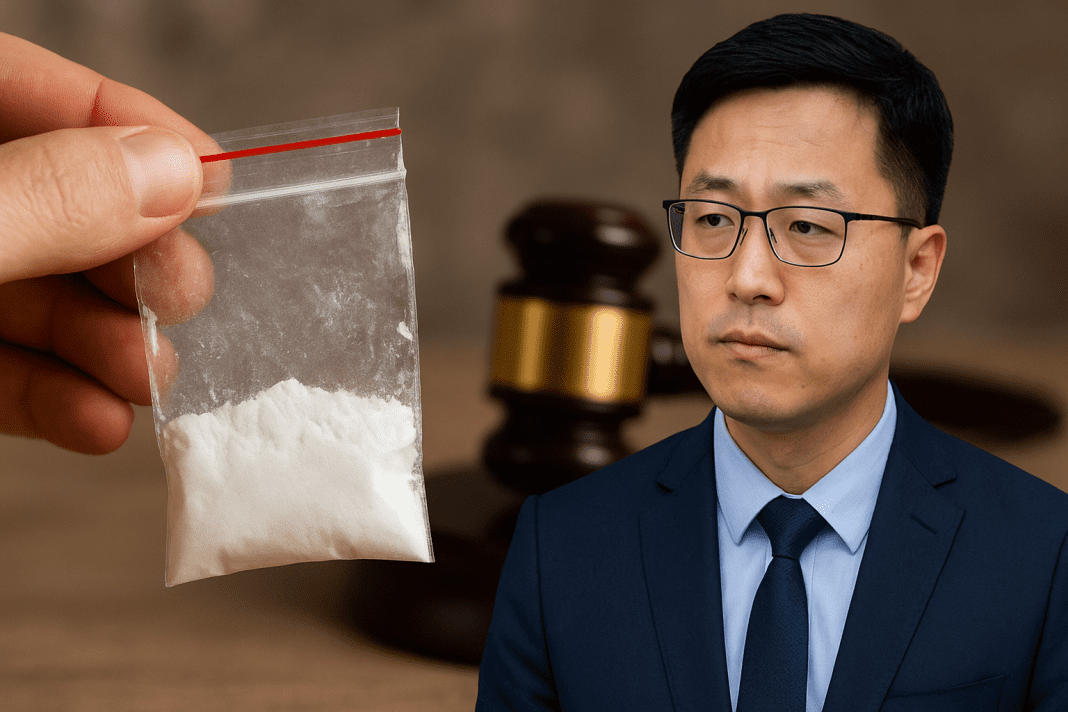A federal court in New York sentenced a senior executive of a Chinese chemical company to 25 years in prison in the United States for trafficking Fentanyl Chemical substances after a lengthy trial that brought international attention.
US Court Hands Down Heavy Punishment for Fentanyl Chemical Crimes
The executive, who was 37 years old, worked at a Wuhan-based chemical company that sold large quantities of Fentanyl Chemicals. The court found the company’s 33-year-old marketing manager guilty along with the executive for sending these substances into the United States. The traffickers disguised the substances as ordinary goods to avoid detection.
The sentencing marks one of the toughest punishments a US court has handed down for Fentanyl Chemical trafficking linked to a Chinese business. The court sentenced the executive to 25 years and gave the marketing manager 15 years in August.
Homeland Security coordinates with foreign partners to seize chemicals linked to cartel operations
The United States Justice Department said the operation moved hundreds of kilos of Fentanyl Chemicals. The traffickers accepted payments through cryptocurrency transactions, which made it harder for authorities to trace the money flow.
Officials described the company as a “pipeline of poison” that contributed to the supply chain of one of the deadliest drugs affecting the United States. The court stressed that the actions were deliberate and caused significant harm to American communities.
First Case Targeting Chinese Companies Directly in US
This case made history because, for the first time, the United States charged Chinese companies with trafficking Fentanyl Chemicals inside its own territory. Normally, suppliers in China ship fentanyl-related chemicals to Mexico, where cartels turn them into finished drugs before smuggling them into the United States.
The June 2023 indictment named eight Chinese nationals and four Chinese companies. Prosecutors accused them of exporting Fentanyl Chemical ingredients that later fueled the opioid crisis in the US. The charges covered not only chemical trafficking but also money laundering activities linked to the sale of these chemicals.
European chemical producers hit by U.S. tariffs after energy crisis recovery stalls
The sentencing triggered reactions from different parts of the world. Chinese officials protested when prosecutors announced the indictment in 2023. Beijing said the US action was “illegal” and violated the rights of Chinese citizens and companies. China condemned the move at that time, which added more strain to the already tense relations between the two countries.
Despite these protests, US authorities pressed forward and stressed that the company’s Fentanyl Chemical shipments directly fueled the crisis of opioid overdoses. Investigators explained that disguising shipments as normal goods made detection at borders more difficult, allowing the precursors to enter the country undetected.
Fentanyl Chemical Crisis at the Center of the Case
The case highlights the dangerous role of Fentanyl Chemicals in the ongoing drug crisis in the United States. Fentanyl is a synthetic opioid that is about 50 times stronger than heroin. It is also much cheaper and easier to produce than traditional opioids.
Because of its strength, even very small amounts of Fentanyl Chemical material can be deadly. Over the past decade, fentanyl has overtaken heroin and prescription opioids such as oxycodone as the leading cause of overdose deaths in the US. Law enforcement officials often warn that a few milligrams, an amount small enough to fit on the tip of a pencil, can be fatal.
The US has long pointed to Mexico as the main source of fentanyl entering the country. Most of the finished fentanyl products are believed to be produced in Mexican labs before being trafficked across the border. However, American officials have increasingly drawn attention to the role of Fentanyl Chemical suppliers in China, who provide the key ingredients needed to manufacture the drug.
Fear soars as China’s mosquito drone can spy without being seen or heard
By convicting and sentencing the executives of the Chinese company, US authorities sent a strong signal about holding international actors accountable in the fentanyl crisis. The court documents showed how the company not only supplied the Fentanyl Chemicals but also actively concealed their true nature, mislabeling them as harmless products.
The scale of the shipments revealed during the trial highlighted how organized the network was. It also demonstrated how the use of cryptocurrency was intended to hide financial trails, making it harder for global regulators and investigators to track illegal profits.
The sentencing serves as a factual record of how Fentanyl Chemicals move across international borders, linking suppliers, distributors, and buyers in a chain that has deadly consequences on the ground in the United States.
